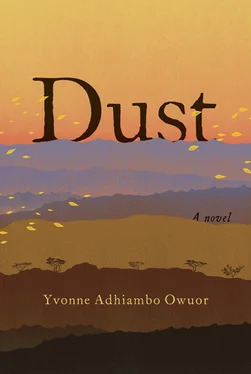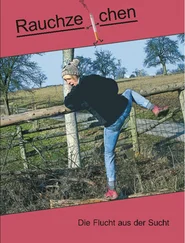Memory of bare feet squishing the boma earth. Intoxicating smells of life. Peering through holes in the thorny fence at a horizon that spilled into a shimmering dome. The longing for her people is a sudden sizzling ache. What if I had stayed? Damp eyes blink at the thought. Ajany walks and imagines Odidi’s water songs. They should have gone together Far Away.
In the middle of her first year at the University of Nairobi, into which she had scraped with the lowest grade allowed, she had hidden in the design lab, reading design magazines from other corners of the globe. There she had spotted a small advertisement. A Nova Scotia — based center of fine arts sought candidates from all over the world to infuse soul into a two-year art, design-in-landscape, and new-technology experiment. The only African applicant, Ajany was accepted by default. She fit the exotic indigenous-person profile.
Odidi had scrutinized the document before screwing up his face. “The shag s of Canada — nothing there that you can’t do here.” Odidi added, “Here, we belong.” Ajany had stared at the black of the road next to which they stood. “Us. We stay here, ’Jany.”
She waited a moment. Stammered, “ ’Didi, don’t see it. Can’t see it here.” She tapped her chest.
He had said, “Not about seeing.”
Teardrops in lashes. She thought a little about that, her face contorting under doubt. With fright in her eyes, she whispered, “Let’s go, Odi.” Heart pounding: “Let’s go, Odi.… Thh-th-this …” She grunted to a stop.
“This,” emphasized Odidi, his hand up in the air, “ this is home.” Tears in his gaze, voice firm. “Home.”
“How?” She would do anything to feel as he felt.
Odidi watched her, rocking on his heels.
She pleaded, “You p-promised, ’Didi.” She coughed, stared at the concrete pavement. A frown creased her face. Was it possible that two separate feelings of place could exist between them? What if she stayed? Instant nausea. So she had shivered, turned, and watched the confident braggadocio of other students, those who had been given coordinates to destinations to which she would never be invited. The noisy weight of a hundred silent terrors that she could escape — here was her chance. Odidi. She saw his rootedness, compared it with her floundering. A panicked question had burst through her lips: “Why does Obarogo need eyes? What’s he looking for inside darkness?”
Shadows crisscrossed her brother’s face. He almost said something, uttered a plea. But shutters fell, and instead he barked, “Choose.”
Ajany saw herself inside Odidi’s eyes, paused before she tore at the convoluted cords that entwined their lives, felt every cut in her bones and being. She had stood close to him, almost on his shoes. Not touching him, but keeping her face close to his chest. Realizing this was how death happened, this loneliness. She had closed her eyes, and murmured Odidi , while inside her heart a cool breeze floated. She had held on to her brother, memorized the sensation of his securing arms; she pulled down his head and kissed the leaf scar on his forehead. He’ll find me , she had told herself. He always did. She had said, “You said we’d go Far Away. You said ‘together.’ ”
He waited.
She waited.
Nothing.
She let him go and drifted into Elsewhere alone.
The funereal silence of her departure was colored by a tinge of shame, of giving up. Impulse of flight, its red-eye rimmed guilt, like she was a haunted bird. “Peace,” she thought. That is how she soothed herself. “Peace.” Except it wasn’t.
She did not know then of the riddles Odidi had discovered in a book off a shelf in Wuoth Ogik until now.

Three children ambling home with family goats and sheep, the sun against the mountains, and white birds singing as they circle a destination. A yellow van hurtles across the landscape. The same potholed sliver of road that had rattled Ajany’s body almost twenty years ago does so again, the same kind of policeman manning inconvenient roadblocks, waylaying wayfarers. Travel companions still reek of rancid butter, the desert’s special sweat. Pulse of language — Kiswahili for trade, English spots, and fifteen murmured dialects — this was how they crossed worlds. The bus sways. View from a dust-dotted window. Stunted flame trees, yellow-blooming cassias, and giant milkweed with white, purple, and pink flower clusters. A child cries; the bus stops. Qhat and livestock traders gather.
The bus conductor is squat, round-shouldered, and bouncy-haired, like a French pop star. The bus is his stage. He pleads for passengers to board in the voice of a frustrated muezzin. “ Waabiria wapenzi …” Beloved passengers. A woman screeches last-second instructions laden with “don’t”s— Msi … Usi —and heaves herself into the bus. Her translucent buibui shimmers, slips off her caramel shoulders with their henna patterns of whorls and flowers. She targets a stern red-bearded passenger immersed in an intricately scripted book of wisdom, and says she is menopausal and must have a window seat. The red-bearded man dives for the back of the bus, squashes himself next to baskets of live chickens. Goats are secured to the roof of the bus.
They are on their way.
And then it is 4:50 a.m.
Welcome to the City of Nairobi . A scarred sign hangs lopsided. The morning leaches multicolored chill. The bus conductor, now a fussy grandmother, tells passengers about Nairobi’s breed of majambazi, wahuni . Wait for the eye of the sun, he suggests.
As if it is reborn in the city, Ajany’s mobile phone clicks into life with a tune. Downloads in Portuguese. Her fingers hover over the “delete” button. She depresses it. The messages disappear. Cold breeze on Ajany’s face, tantalizing promise: She will find Odidi. Listen to his stories. If he says, Stay , she will this time.

Places are ghosts, too. The clouds above Nyipir’s head are shaped like an anvil. Light squeezes through a tongue of cloud sparkling mauve, purple, yellow, and green. Distant cowbells. Seven days have passed since he returned from a night search to discover that his daughter had left Wuoth Ogik.
Galgalu said, “Ah … she went to bring … uh … flowers.”
“Flowers?”
“For Odidi.”
“Flowers. And you didn’t stop her?”
“ Ah … no.”
“She didn’t tell me?”
Galgalu looked miserable.
“Why?” cried Nyipir. “Kenya’s treacherous. She doesn’t know it.”
Galgalu had crept away.
Nyipir had rushed to the boundary fence, looking and looking and seeing nothing.
Isaiah hears voices. Heaviness in his body; he does not want to move. So he closes his eyes and sleeps through the day and night.
NYIPIR STARES AT THE GAP THAT WILL CONTAIN ODIDI’S CASKET. Around him the emptiness. The coral house. A temptation: to set alight walls inhabited by unseen termites that are eating it to the ground. He could stay at the center of the fire.
A heavy sigh. Memories are ghosts .
Nyipir was Kenyan once. Then Kenya had torn Akai away from him. Memories are ghosts. The day after Independence Day, Nyipir became one of the newly independent warrior-men stepping in array into Hurri like locusts. Invading the nation. Marching, marching, and not seeing then that he and his kind were the new scapegoats, so that a freshly haunted people would never ask why . Marching, marching. Myth of valor spun to explain the desecration of a nation; oaths of silence; Nyipir marched and marched to whispers of blood oaths that had been made for him.
Читать дальше












